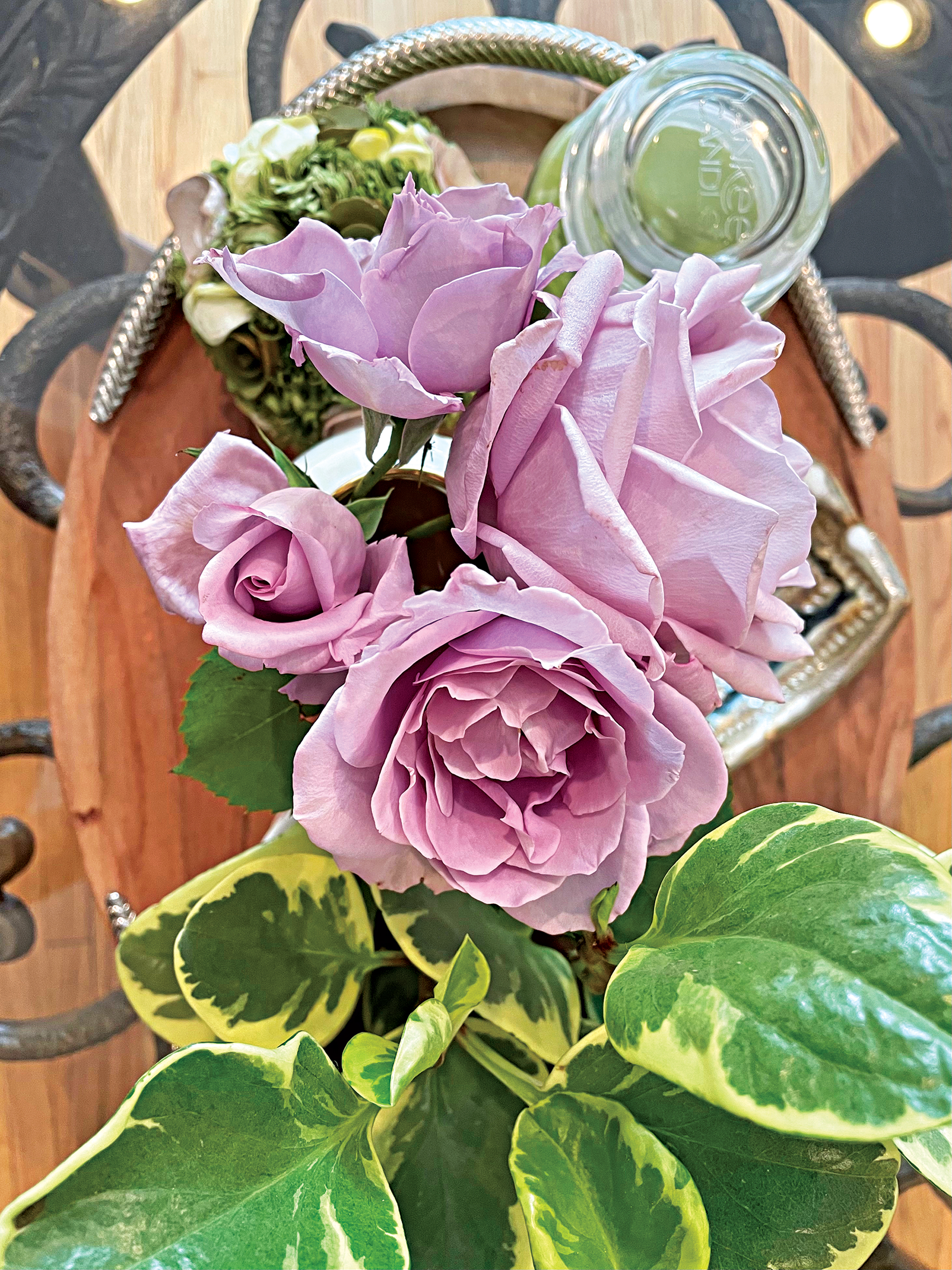Why you should plant flowers

"A beautiful beginning to a brand-new day," I say to myself.
In addition to adding visual interest to a landscape, flowers have heaps of other benefits, which range from reducing stress to helping pollinators. I have a little garden of my own, most of which is dedicated to flowers, and some to edibles.
People have asked us as to why we do not grow more fruits and vegetables instead of flowers. We grew vegetables for the first time last year. We are doing the same this year. However, most of our backyard space is still dedicated to "ornamental" plants, because flowers not only brighten up our little backyard, but also make us h-a-p-p-y. Just think how happy it makes you when someone gifts you a bouquet. Flowers fill us instantly with positive feelings!

In a 10-month study conducted by Rutgers University, one of the leading public research universities in the US, to explore the link between flowers and emotional health, it was seen that flowers have an immediate impact on happiness; flowers have a long-term effect on moods, reducing stress, anxiety, agitation, and depression; and flowers make intimate connections, meaning that giving and receiving flowers create closeness between friends and families.
To me, watching my roses, peonies, lilies, and hydrangeas coming back in spring is something I wait and look forward to throughout winter. In late spring and summer, when they bear flowers and give a splash of colours to my backyard, their sights and smells rejuvenate me. I feel that I have more energy than ever!
Flowers in your garden attract pollinators. My backyard guests in summer include, but are not limited to, pollinators like bumble and honey bees, butterflies, beetles, ants, moths, and hummingbirds. For us to live and survive in this world, the pollinators must survive as well, because pollination is an ecological function without which our planet's ecosystems will collapse.
Did you know that over 80 percent of the world's flowering plants need a pollinator to reproduce? Most vegetables and fruits that we consume come from flowering plants.
Although I do not cut the flowers that I grow, I do sometimes bring some home when the weather forecast predicts heat or heavy rain. When I bring fresh flowers indoors, they change at once the ambiance of the house.

I cut the stems at an angle, remove any leaves that would be submerged under the waterline of the vase, and change the water daily or every other day. A combination of sugar and white vinegar, if added to the water in the vase, help make cut flowers last longer.
To grow flowers, you do not need a plot of ground. You can grow flowers on your balcony or rooftop. A bit of careful planning, choosing the right plants, and a mind-set to invest time and love in them are what you need.
My mother has a not-so-big balcony in Dhaka where she grows Ixora, bougainvillea, zinnia, orchid, hibiscus, crown of thorns, dahlia, a variety of roses and jasmines, and more!
Gardening can be anyone's pastime, if you are ready to love nature and help the planet.
Because plants need care just like babies do, if you do not love them, they will try to communicate their struggle with you; their leaves will wilt, droop, and yellow.
One may think that we nurture our plants but the truth is that it is our plants that nurture us. Not only do they increase our happiness and cut our stress and anxiety, but also taking care of plants is good exercise.
According to the Centers for Disease Control and Prevention (CDC), gardening qualifies as an exercise, a moderate level of physical activity that works all of the major muscle groups, including legs, arms, back, abdomen, buttocks, neck, and shoulders.
The benefits of having and nurturing a flower garden are more than what we see with our eyes, so don't think twice and get your hands dirty!
Photo: Wara Karim
 For all latest news, follow The Daily Star's Google News channel.
For all latest news, follow The Daily Star's Google News channel.
Comments